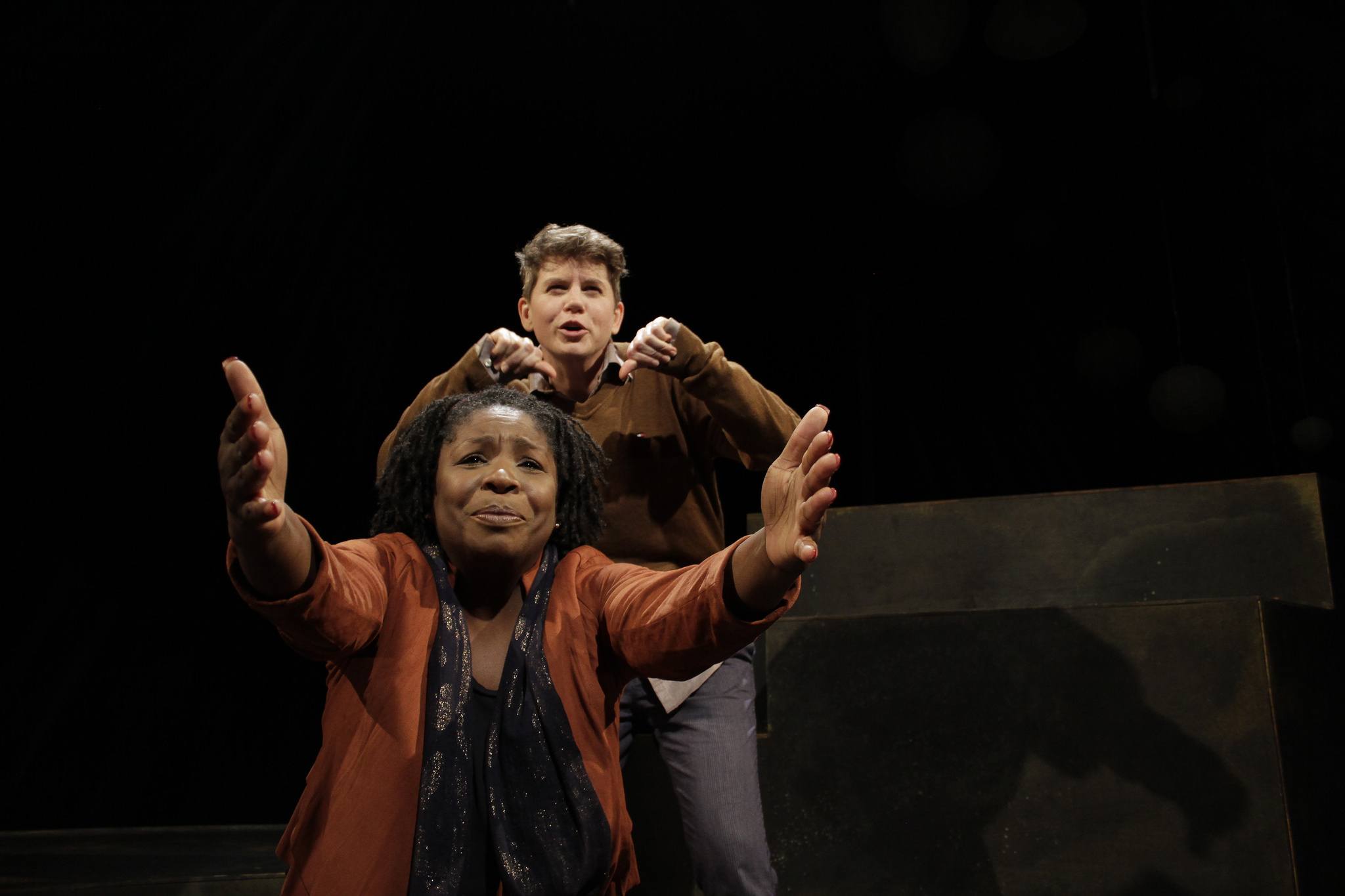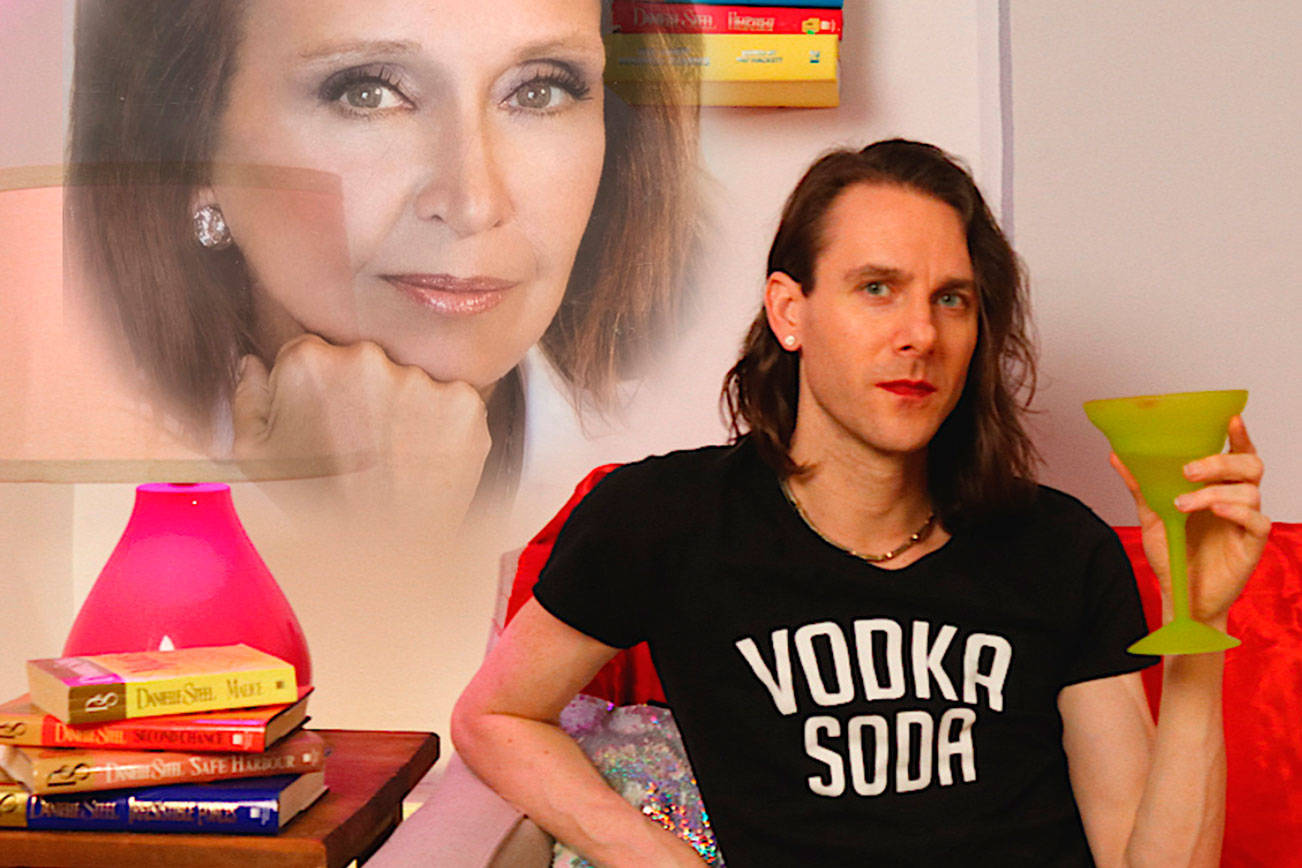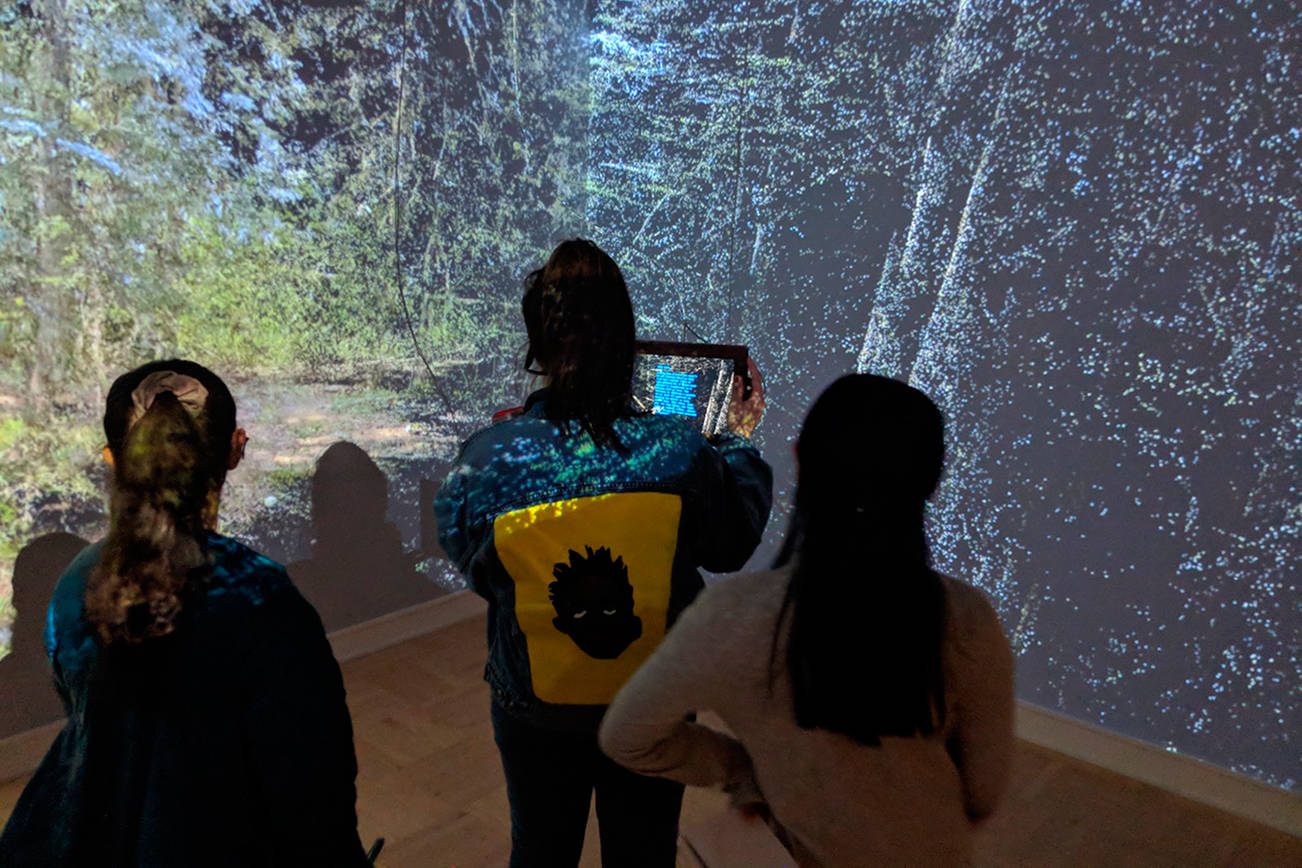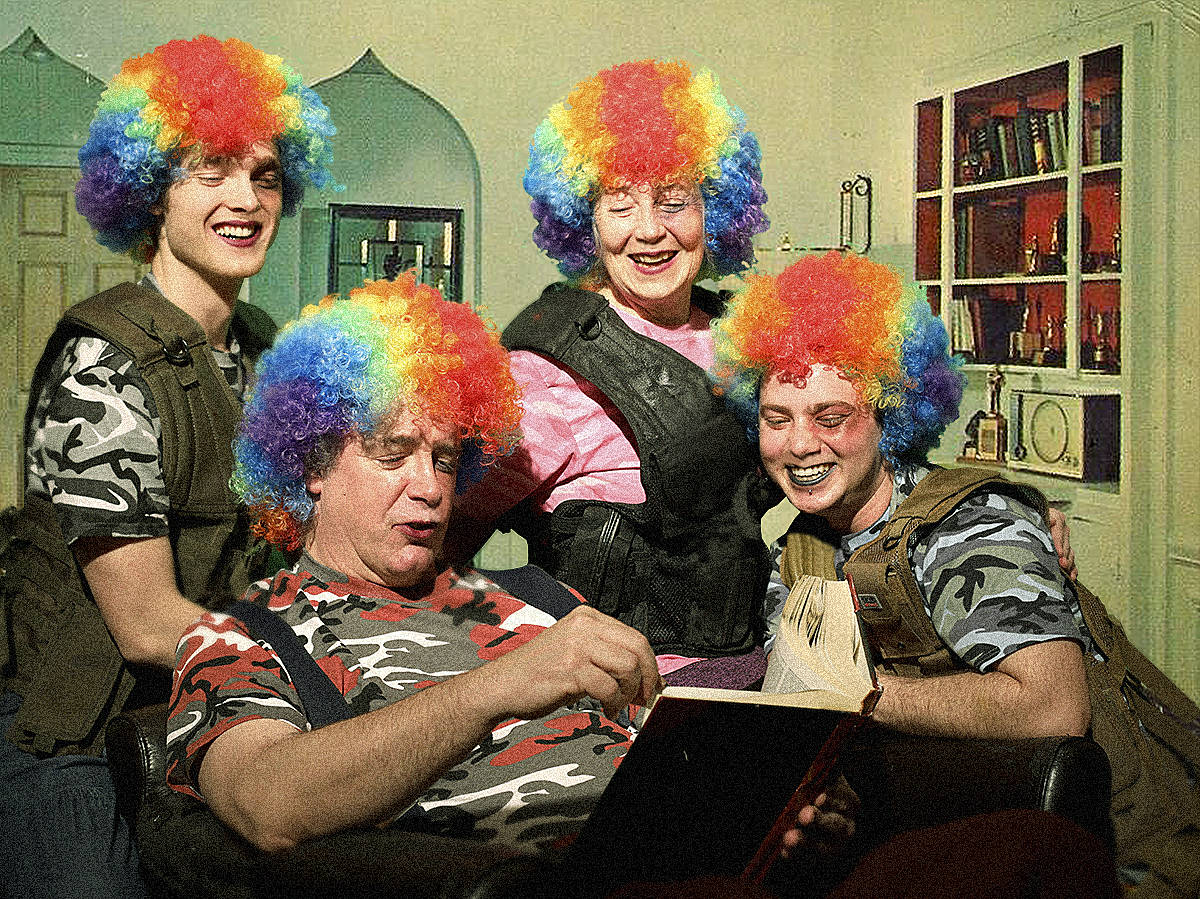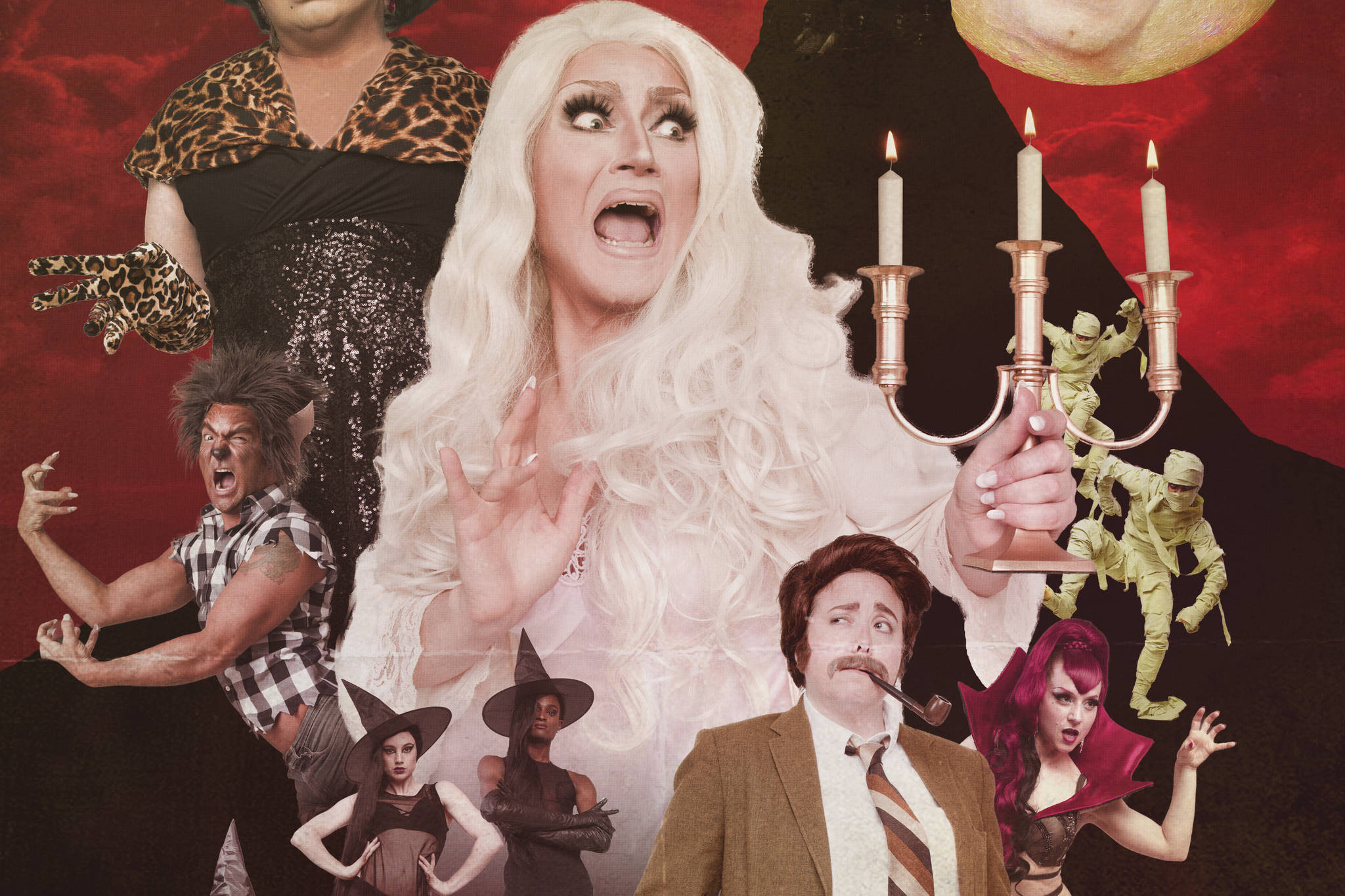Love is complicated. Committed partnerships require patience, softness, and dedication. Even beyond intimate partnerships, how we treat one another is central to the way we build communities and thrive. In a time of mass resistance, a play that fleshes out the complexities of care is nourishing for those of us who need encouragement to fight. How do we carry one another in love?
Tanya Barfield’s Bright Half Life, presented by the New Century Theatre Company and The Hansberry Project, chronicles the relationship between two women from the moment they meet through breakups, dating, conflict, children, family drama, and sickness, and gets at the core of this eternal question. Seeing a contemporary queer love story on stage—one with engaging lighting design at that—is refreshing, especially in the political moment we find ourselves in. We need queer love stories to remind us to cherish those around us and invest in relationships that are compassionate and supportive.
Anticipation and commotion builds from the beginning of the dynamic, romantic production. The narrative hops back and forth in time, visiting shared moments from the couple’s decades together. The transitions between scenes are innovative, often connected by staging or topic. In the opening scene, the attention quickly moves from heartbreak to heartburn: Erica (Rhonda J. Soikowski) has recently received news that her father is dying and appears alone on Vicky’s (Tracy Michelle Hughes) doorstep. Stricken with grief and shock, Erica begs Vicky for support. “Ow, my heart!” Erica yells and quickly moves to the other side of the stage, her body and face subtly adjusting to the new type of pain she is experiencing as a light is switched on to highlight the space she now inhabits. Vicky responds with hesitant care, a shadow of the monumental affection that develops in the latter years of their relationship. The alterations in lighting and acting cue the audience to recognize that we are now in an entirely different time and place in the characters’ lives. Erica grasps at her chest, now suddenly complaining of heartburn when moments earlier she was stricken by grief. Vicky’s responses to Erica’s grief and discomfort illuminate the numerous kinds of caretaking included in partnership. The show’s back-to-back pacing cleverly illustrates how levels of intimacy and support build as a relationship grows. Bright Half Life interlaces imperative moments such as loss and childbearing with moments of joy and silliness, and that variety makes for an exhilarating performance.
The stage is black and multi-platformed, with sharp, geometrical edges. White light fixtures hang down at varied lengths from the ceiling, surrounding the stage in a half-moon shape. HATLO’s directing takes full advantage of Catherine Cornell’s scenic design and Jessica Trundy’s lighting through scenes that span the full stage. In one effective scene, revisited and repeated throughout the show, Vicky and Erica are stuck on a Ferris wheel sitting on the highest point of the stage. Their bodies rock back and forth, mimicking the movement of the gondola as sounds of a fair are heard in the distance. The women are on their third date. Their timid touches and blushes, often present in awkward courting, are highly relatable. Swiftly the actors transition from the highest point to center stage—Vicky and Erica are now in a mattress store, discussing the future of their relationship while jokingly jumping on mattresses. The audience is invited into their intimate lives, arguments, and lovemaking, revealing the vastness of a partnership that moans with fervor.
Erica says in the midst of a tense fight, “I don’t know who I am but I know I love you.” Their lives are intertwined. The hanging lights turn on all at once, throwing light upon the bodies of the couple draped over one another. How do we love one another attentively? Bright Half Life begins to answer this question for us. Bright Half Life, 12th Ave Arts, 1620 12th Ave., wearenctc.org. $20–$40. All ages. Ends Sat., March 11. stage@seattleweekly.com
